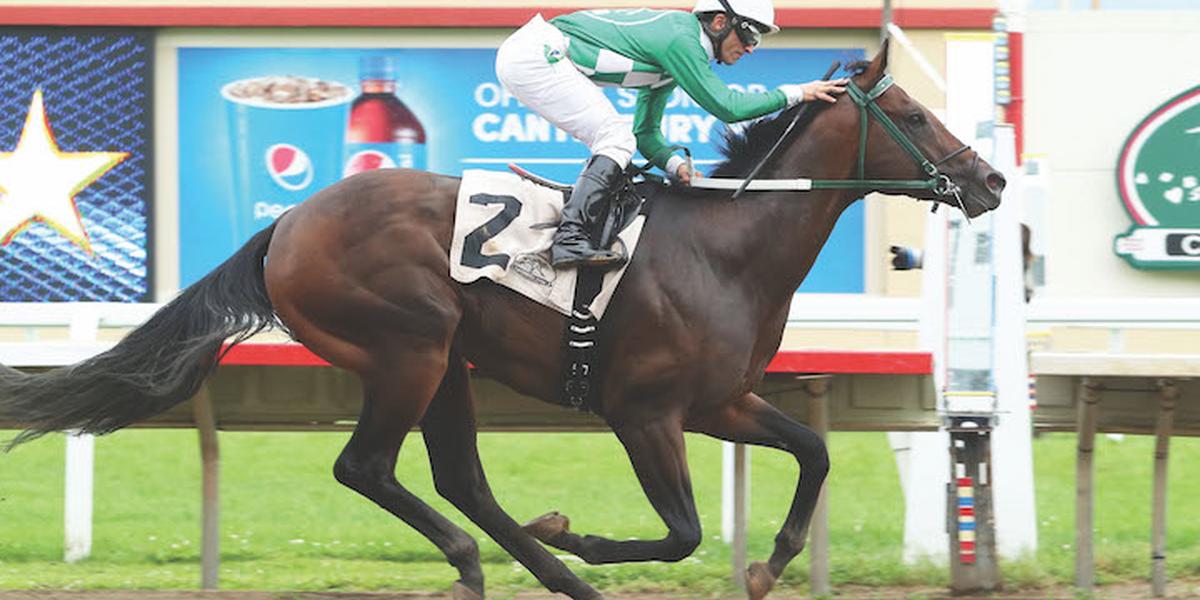On February 25, an 18-year-old thoroughbred mare was trailered into the University of Minnesota’s Piper Equine Hospital for severe acute colic. A common and potentially deadly source of such gastrointestinal pain is a twisted colon, which often requires surgery to correct. This emergency case was particularly risky, since the mare was roughly a month away from giving birth.
“Severe colic from a twisted colon is a life-threatening emergency, and in this case, there was also a very real risk to the foal” says Lauren Hughes, DVM, a large animal internal medicine resident who worked on the case with Bridget Nottle, DVM, and Elizabeth Coppelman, DVM, of the equine surgery service. To add urgency to the case: The thoroughbred was a racehorse broodmare carrying a valuable foal with a desired racing future someday.
The initial exam was complicated by the 100-pound fetus the mare was carrying. Based on the examination and tests performed, Nottle and Coppelman determined the baby was still alive and decided the mare would need emergency surgery to treat her life-threatening colic condition.
That evening, the mare was taken to surgery, where it became clear that her colon was twisted and displaced. A twisted colon not only blocks food and gas from passing but can also cut off circulation and starve tissues of blood and oxygen. The surgery team untwisted the colon and correctly placed the abdominal organs back into position.
The mare recovered from surgery and was given antibiotics, anti-inflammatories, IV fluids, and gastroprotectants. While in recovery, she showed signs of an acute kidney injury, which could have been correlated to the severity of her colic. “That forced her medical team to be more aggressive with IV fluids, additional medications, monitoring, and nutritional support,” says Hughes.
Now the onetime racehorse was in a race of a different kind— healing fast enough to give birth. “Mares need to use their abdominal muscles to deliver a foal,” says Hughes. Twenty-five days after she was admitted, the mare went into labor. “She foaled in the middle of the night,” says Hughes. “From the time he reached the ground, she was nickering and taking good care of him.”
Hughes says the dedication of the mare’s owners and doctors, and the hospital staff working as a team, made the treatment a great success story. “We got a healthy, happy mare out of it ... and a healthy, happy colt.”
Photo courtesy of Jeff J. Maday, Canterbury Park

